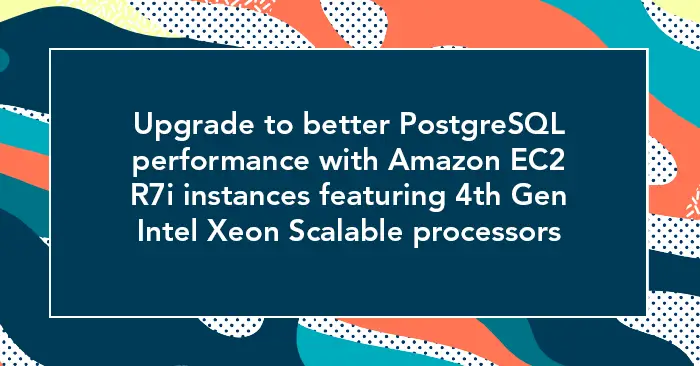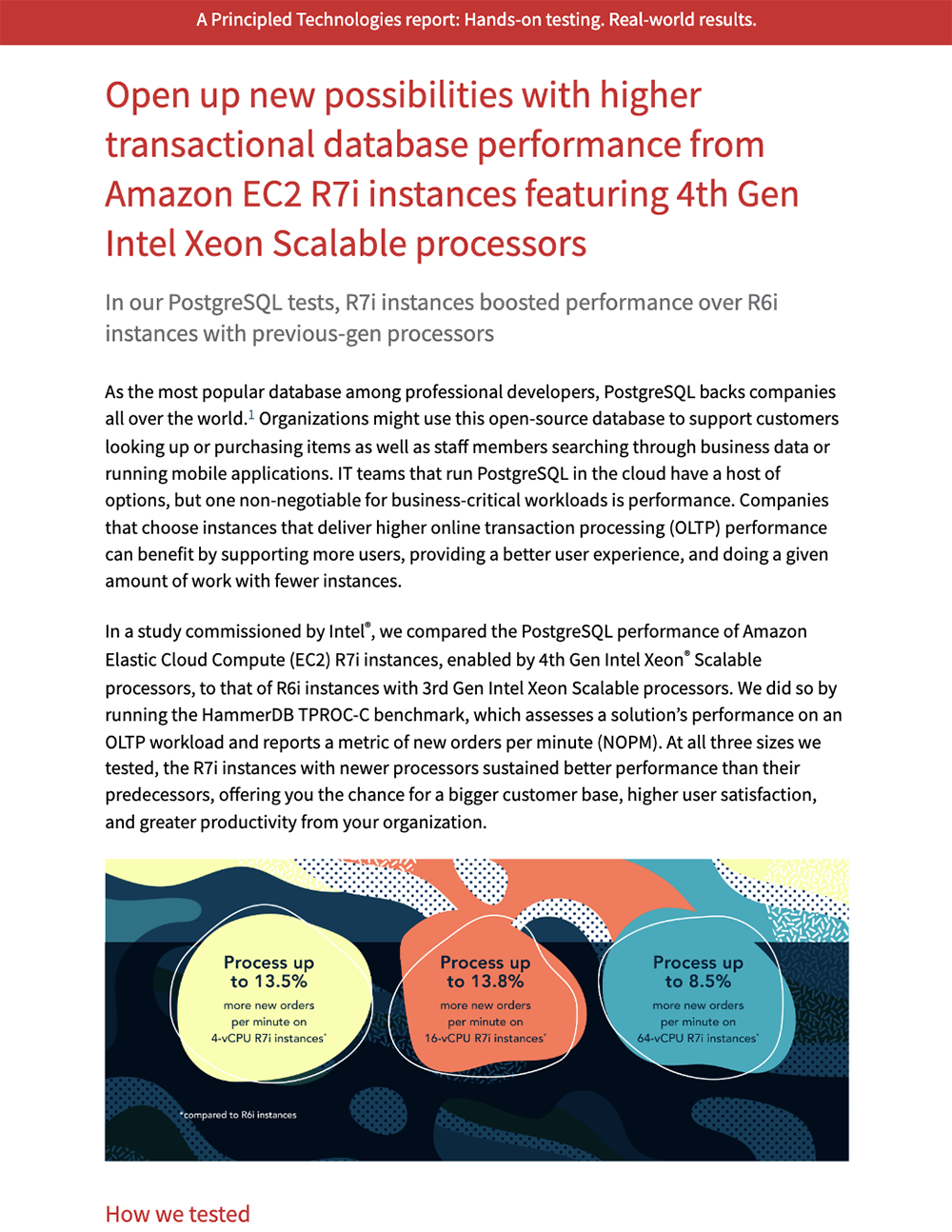
PostgreSQL has become a go-to transactional database system for many organizations around the world due to its open-source flexibility, scalability, and feature-rich extension ecosystem, among other benefits. Because PostgreSQL supports a diversity of data types and runs on a wide variety of architectures and operating systems, IT teams that manage PostgreSQL in the cloud have many hosting solutions to choose from. While many cloud instances can support basic PostgreSQL operations, some are better equipped than others to provide the high levels of online transaction processing (OLTP) performance that can help businesses explore new opportunities and stand out from their competition.
We used the HammerDB TPROC-C benchmark to compare the PostgreSQL performance of Amazon Elastic Cloud Compute (EC2) R7i instances powered by 4th Gen Intel Xeon Scalable processors to that of R6i instances with 3rd Gen Intel Xeon Scalable processors. On both the R7i and R6i solutions, we tested three progressively larger instance sizes—4 vCPUs, 16 vCPUs, and 64 vCPUs. With all three sizes we tested, the R7i instances with newer processors sustained better OLTP performance than their predecessors, with improvements as high as 13.8 percent in one instance size.
Our results show that by choosing Amazon EC2 R7i instances with 4th Gen Intel Xeon Scalable processors to host critical PostgreSQL database operations, your organization could reap the benefits of higher OLTP performance, including the potential to support a larger user base, deliver a better user experience, and get a greater return on your cloud investment.
To read more about our Amazon EC2 instance comparison tests, check out the report below.
Principled Technologies is more than a name: Those two words power all we do. Our principles are our north star, determining the way we work with you, treat our staff, and run our business. And in every area, technologies drive our business, inspire us to innovate, and remind us that new approaches are always possible.






